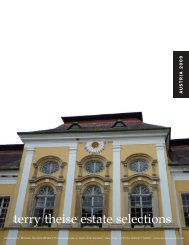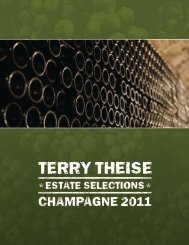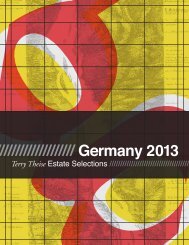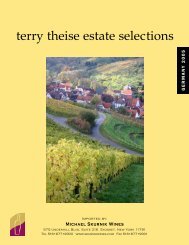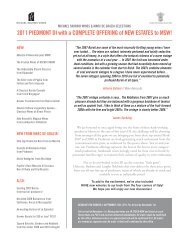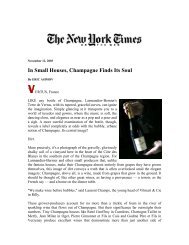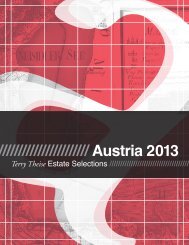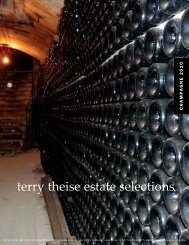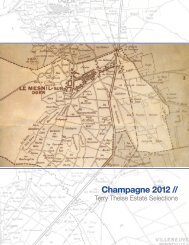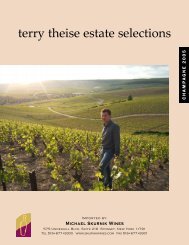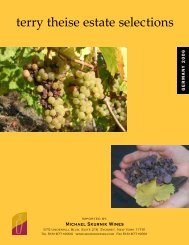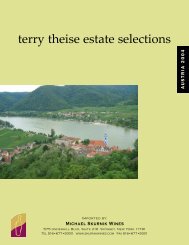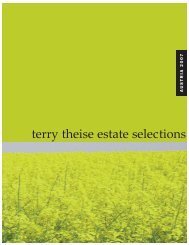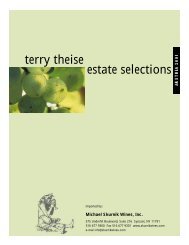View 2013 Champagne Catalog - Michael Skurnik Wines
View 2013 Champagne Catalog - Michael Skurnik Wines
View 2013 Champagne Catalog - Michael Skurnik Wines
Create successful ePaper yourself
Turn your PDF publications into a flip-book with our unique Google optimized e-Paper software.
Introduction<br />
What is this thing called “Brut?”<br />
One thing it isn’t is drier than it used to be,<br />
despite those news reports that “Brut” would be confined<br />
to 12g.l. or below, instead of the 15g.l. which was formerly<br />
allowed. Well, that is not exactly true; it’s truthy, as Mr.<br />
Colbert would say. Because this fierce new rule permits a<br />
tolerance of 1.5g.l. in either direction. “Nothing’s going<br />
to change,” is what I was told, again and again.<br />
One time I ordered a vintage Blanc de Blancs from<br />
one of the better négociants. It ought to have been good,<br />
and it was. Out of curiosity I left half a glass to go flat.<br />
Tasting it at the end of the meal, I was startled to see how<br />
sweet it was.<br />
The next morning at Pierre Gimonnet I tasted<br />
his N.V. Brut, which had 6 g.l. residual sugar. This was<br />
certainly dry <strong>Champagne</strong>, correctly called “Brut.” But<br />
a commercial <strong>Champagne</strong> with 15 g.l. sweetness (the<br />
highest legally permitted, and very often seen across<br />
the big brands), low acidity, neutral character, all of<br />
it disguised by CO 2<br />
, is SWEET wine. It tastes like a<br />
Rheinhessen Kabinett with 30 g.l. residual sugar.<br />
And both of them called “Brut”!<br />
The dosage liqueur is one of two things, either<br />
wine (of varying type) to which cane or beet sugar is<br />
added, or concentrated grape-must. And naturally,<br />
growers’ opinions differ!<br />
Insofar as all the must-concentrate seems to hail<br />
from the Languedoc, I have some doubts. Uneasy is the<br />
mouth which speaks of terroir in one breath and describes<br />
adding Languedoc must-concentrate to <strong>Champagne</strong><br />
in the next. Even more uneasy the mouth intoning its<br />
organic credentials while adding chemically-produced<br />
Languedoc must concentrate to his wine instead of the<br />
organic alternative: sugar (organically grown) dissolved in<br />
his own organic wine. What you have to probe to learn is<br />
4



